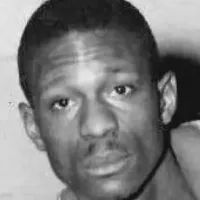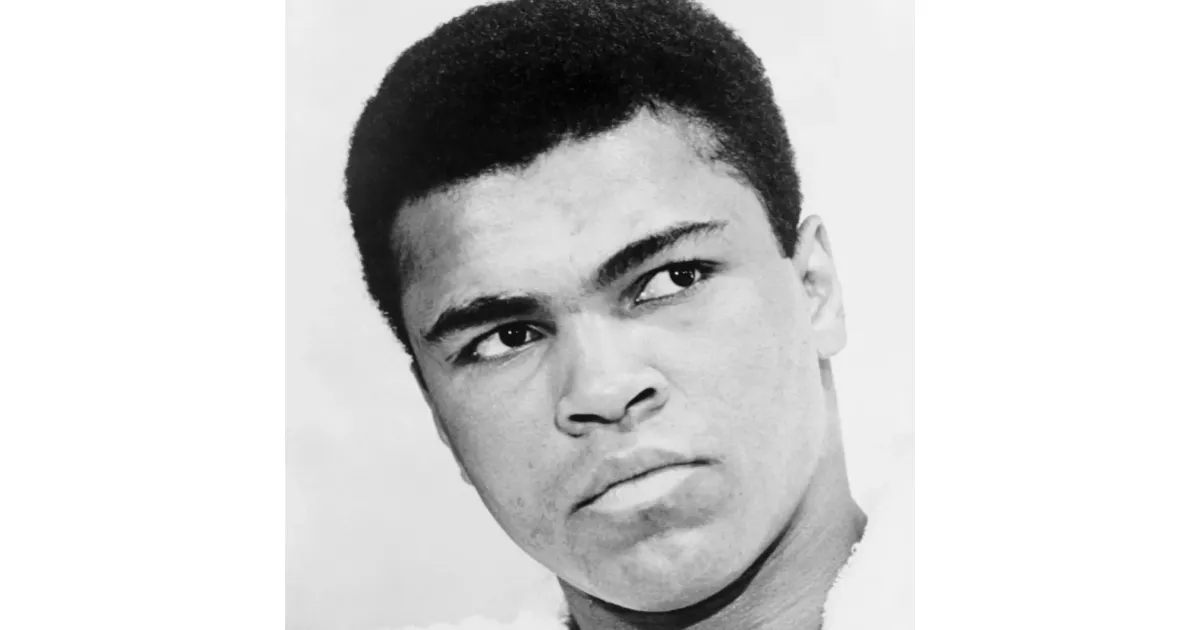Resilience and perseverance in the journey of Muhammad Ali. A timeline of obstacles and growth.
Muhammad Ali, nicknamed "The Greatest," was an iconic American professional boxer and social activist, widely considered the greatest heavyweight boxer ever. He held multiple titles, including the Ring magazine heavyweight title (1964-1970), undisputed champion (1974-1978), and WBA and Ring heavyweight champion (1978-1979). His impact extended beyond boxing, making him a global cultural icon. He was named Sportsman of the Century by Sports Illustrated and Sports Personality of the Century by the BBC in 1999.
1955: Impact of Emmett Till Murder
In 1955, the murder of Emmett Till deeply affected the young Cassius Clay, later known as Muhammad Ali. He expressed immense distress over the event, which highlighted the racial injustice of the time.
1962: Ali listed as 1-A for Conscription
In 1962, Muhammad Ali was listed as 1-A for conscription in the United States military after registering on his 18th birthday.
March 13, 1963: Fight of the Year vs. Doug Jones
On March 13, 1963, Cassius Clay fought Doug Jones at Madison Square Garden in New York. Jones staggered Clay in the first round, and Clay's unanimous decision victory was met with boos. The Ring magazine later named the fight "Fight of the Year."
1964: Ali reclassified as Class 1-Y
In 1964, Muhammad Ali was reclassified as Class 1-Y (fit for service only in times of national emergency) after failing the U.S. Armed Forces qualifying test due to his dyslexia.
March 1966: Ali Refuses Armed Forces Induction
In March 1966, Muhammad Ali refused to be inducted into the armed forces.
March 29, 1966: Fight Sanction Refused
Muhammad Ali and Ernie Terrell had agreed to a fight on March 29, 1966, in Chicago. However, after Ali was reclassified by the draft board and indicated he would refuse to serve in the Vietnam War, the Illinois Athletic Commission refused to sanction the fight.
February 6, 1967: Ali vs. Terrell Fight
On February 6, 1967, Muhammad Ali fought Ernie Terrell in Houston. Terrell, considered Ali's toughest opponent since Liston, was unbeaten in five years. Ali won a unanimous 15-round decision in a fight marked by Ali's taunting of Terrell.
March 1967: Ali Denied Boxing License and Stripped of Passport
In March 1967, Muhammad Ali was systematically denied a boxing license in every state and stripped of his passport.
April 28, 1967: Ali Refuses Induction into U.S. Armed Forces
On April 28, 1967, in Houston, Muhammad Ali refused three times to step forward for his scheduled induction into the U.S. Armed Forces and was arrested, leading to the suspension of his boxing license and stripping of his title.
June 20, 1967: Ali Found Guilty of Draft Evasion
On June 20, 1967, Muhammad Ali was found guilty by a jury of violating Selective Service laws by refusing to be drafted.
1971: Ali's Case Reviewed by U.S. Supreme Court
In 1971, The U.S. Supreme Court reviewed Muhammad Ali's case after the Court of Appeals upheld the conviction.
October 30, 1974: The Rumble in the Jungle
On October 30, 1974, Muhammad Ali fought against heavyweight champion George Foreman in Kinshasa, Zaire, in a bout nicknamed The Rumble in the Jungle. At the time, almost no one gave Ali a chance of winning.
October 1, 1975: Thrilla in Manila
On October 1, 1975, Ali fought Joe Frazier in the "Thrilla in Manila". Ali started aggressively but tired, employing the "rope-a-dope" strategy. Frazier attacked relentlessly, but Ali landed blows in the 12th round, impairing Frazier's vision. Ali dominated rounds 13 and 14. Frazier's trainer stopped the fight after the 14th round, awarding Ali a TKO victory.
April 30, 1976: Ali Wins Against Young
On April 30, 1976, Ali fought Jimmy Young and won a controversial unanimous decision. Howard Cosell commented on Ali's off timing, and Ali admitted to conserving energy for Ken Norton.
June 26, 1976: Ali vs. Inoki Exhibition Bout
On June 26, 1976, Ali participated in an exhibition bout in Tokyo against Antonio Inoki. Due to restricted rules, Ali only landed two jabs while Inoki's kicks caused blood clots and an infection, almost resulting in amputation of Ali's leg. The match was declared a draw and is now considered an influential mixed-style fight.
1978: Revealed financial status and net worth estimate
In 1978, Ali revealed that he was "broke" and several news outlets reported his net worth to be an estimated $3.5 million (inflation-adjusted $17 million). The press attributed his decline in wealth to several factors, including taxes consuming at least half of his income, management taking a third of his income, his lifestyle, and spending on family, charity and religious causes.
October 2, 1980: Ali Fights Holmes
On October 2, 1980, Muhammad Ali fought Larry Holmes at Caesars Palace in Las Vegas. Holmes dominated the fight, and Angelo Dundee stopped it after the tenth round. It was Ali's only loss by stoppage.
December 11, 1981: Ali's Last Fight
Despite pleas to retire, on December 11, 1981, Ali fought Trevor Berbick in Nassau, Bahamas, losing a ten-round decision. This was his final fight.
1981: $3 Million Lawsuit
In 1981, Temica Williams (also known as Rebecca Holloway) launched a $3 million lawsuit against Ali for sexual assault, claiming that she had started a sexual relationship with him when she was 12, and that her son Osmon (born 1977) was fathered by Ali when she was 17. She further alleged that Ali had originally supported her and her son financially, but stopped doing so after four years.
1984: Diagnosed with Parkinson's Syndrome
In 1984, Ali was diagnosed with Parkinson's syndrome, sometimes resulting from head trauma from violent physical activities such as boxing.
1986: Lawsuit Thrown Out
In 1986, the $3 million lawsuit filed against Ali by Temica Williams in 1981 was thrown out due to the statute of limitations.
February 2013: Rumors of failing health and death
In February 2013, Ali's brother Rahaman Ali said Muhammad could no longer speak and could be dead within days. Ali's daughter May May Ali responded to the rumors, stating that she had talked to him on the phone the morning of February 3 and he was fine.
December 20, 2014: Hospitalized for pneumonia
On December 20, 2014, Ali was hospitalized for a mild case of pneumonia.
January 15, 2015: Hospitalized for urinary tract infection
On January 15, 2015, Ali was hospitalized for a urinary tract infection after being found unresponsive at a guest house in Scottsdale, Arizona. He was released the next day.
June 2, 2016: Hospitalized with a respiratory illness
On June 2, 2016, Ali was hospitalized in Scottsdale, Arizona, with a respiratory illness. His condition worsened, and he died the following day at the age of 74 from septic shock.
Mentioned in this timeline

Basketball is a team sport played on a rectangular court...

Michael Jordan often known as MJ is a businessman and...

Bill Clinton the nd U S President - served as...
World Wrestling Entertainment WWE is a prominent American professional wrestling...

Stevie Wonder born Stevland Hardaway Morris is a highly influential...

Bill Russell was a dominant American professional basketball player primarily...
Trending

Rob Schneider is an American actor and comedian best known for his time as a cast member on Saturday Night...

4 months ago DeRozan Believes Clifford Can Be A Star; Kings Surprise Lineup Move.

3 months ago Goldie Hawn Celebrates Her 80th Birthday by Defying Ageing with Youthful Looks

10 months ago Mavericks Announce News Before Kings Game; Malik Monk's Performance Anticipated.

9 months ago Brook Lopez's Role in Bucks-Pacers Series Questioned; Workload Reduced in NBA Playoffs

3 months ago Cade Cunningham Leads Pistons to Sixth Straight Win Despite Mounting Injuries.
Popular

Kid Rock born Robert James Ritchie is an American musician...

Melania Trump a Slovenian-American former model has served as First...

XXXTentacion born Jahseh Dwayne Ricardo Onfroy was a controversial yet...

Thomas Douglas Homan is an American law enforcement officer who...

Instagram is a photo and video-sharing social networking service owned...
The Winter Olympic Games a major international multi-sport event held...
